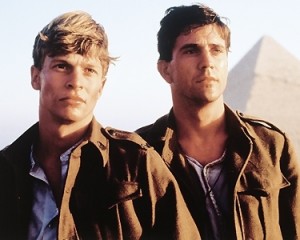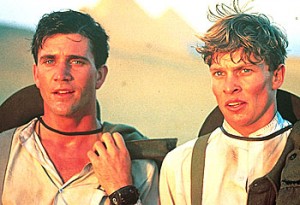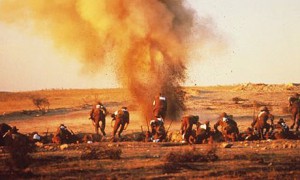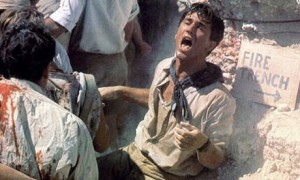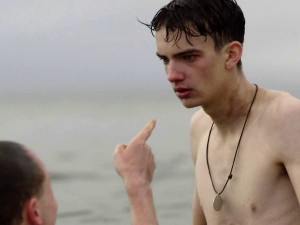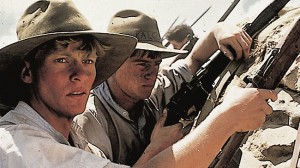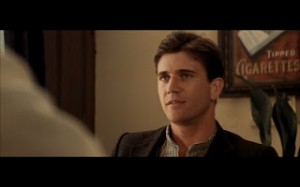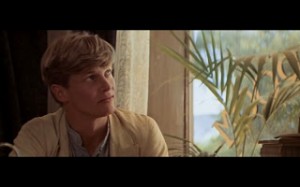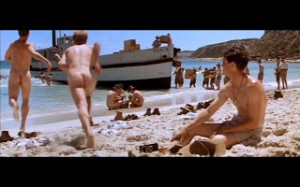Gallipoli **** (1981, Mel Gibson, Mark Lee, Bill Kerr) – Classic Movie Review 420
Director Peter Weir’s brilliantly realised, frighteningly realistic 1981 anti-war movie, which packs a gut-wrenching punch to the heart and brain, is powerful and moving in the best traditions of great Aussie film-making.
Mel Gibson and Mark Lee star as the fictional Frank Dunne and Archy Hamilton, young patriotic Australian sprinter running buddies who sign up for military service for their country in World War I. They finally get to join the Anzac war effort in the Dardanelles in 1915. But nothing has prepared them for the shocking realities of the conflict in the Gallipoli campaign in Turkey.
Along with the same year’s Mad Max 2, this first-class film shot the Gibson to stardom, and deservedly so. His fresh and touching performance will surprise those who only remember him from the Mad Max and Lethal Weapon movies. Sadly, it failed to turn the equally exciting young Lee into a big film star, though he also gives an extremely ingratiating, affecting performance.
It’s at heart a story of friendship and male bonding. It’s important that the two young actors have such a great rapport and share fine screen chemistry.
Weir directs with the greatest of flair and confidence, delivering an enormous, sometimes gruelling visceral attack on the audience’s sensibilities. Weir, who is credited for the original story, was inspired to make the film after visiting a World War One battle site. Screen-writer David Williamson adapted his screenplay from Bill Gammage’s book The Broken Years, a collection of diary excerpts and letters from around 1000 soldiers who fought at Gallipoli.
Costing $2.8 million, Gallipoli was then the most expensive Australian film. It’s co-produced by Rupert Murdoch whose father, Keith, was a journalist in World War I, visited Gallipoli in September 1915 and became a agitator against British conduct during the battle.
Good though it is on the horrors of war in general, the film doesn’t tell any real or true stories, as it seems to. ‘Although based on events which took place on the Gallipoli Peninsula in 1915, the characters portrayed in this film are entirely fictitious,’ it says.
Outside Australia, it was widely criticised for ignoring the British contribution at Gallipoli. What’s bad about its anti-British stance is that the disastrous charge at The Nek on August 7 1915 was authorised by an Australian officer, not a British one, as depicted in the film. Weir now regrets this and acknowledges that the British made just as valiant a contribution to the campaign as the Australians did.
Weir said in 1981 that Gibson, was ‘full of beans and really with no grand career ambitions’. However, Gibson (born 1956) went on to become a worldwide movie star, while Sydney-born Lee (born 1958) is a regular on Aussie TV.
The story was retold as the TV mini-series Gallipoli in 2015, with Kodi Smit-McPhee, Harry Greenwood and Sam Parsonson.
Bill Kerr (who plays the important role of Jack in Gallipoli) died at 92 on . He also featured in Peter Weir’s The Year of Living Dangerously, and he was Giles Kent in Doctor Who (1967-68). He was one of Tony Hancock’s regular sidekicks on the popular radio series Hancock’s Half Hour for its six-year run in the Fifties. He plays Jack Coombes in The Wrong Arm of the Law (1962).
© Derek Winnert 2013 Classic Film Review 420
Check out more reviews on derekwinnert.com

